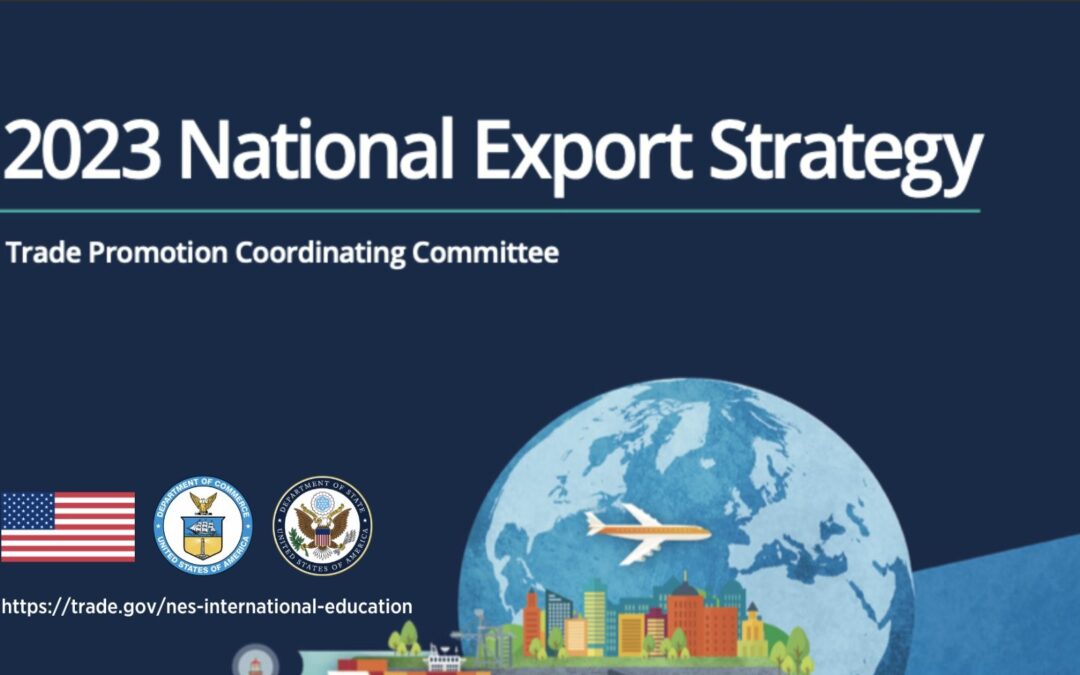By Gabrielle Cascio
Among the exchange community and its champions, it has always been evident that the impact of international educational and cultural exchange opportunities goes beyond the personal: they support U.S. national security, strengthen the U.S. economy, and increase mutual understanding around the world. With last week’s publication of the 2023 National Export Strategy, the U.S. Department of Commerce joins the ever-growing contingent of entities formally recognizing the importance of international education to the United States’ economic, political, and social growth.
For the first time in the report’s history, international education was highlighted as a top export priority, with a whole chapter focused on successes and challenges facing the industry, as well as opportunities for a variety of stakeholders to collaborate and further promote U.S. education and exchange opportunities.
Like the U.S. Department of State and U.S. Department of Education’s “Joint Statement of Principles in Support of International Education” in 2021, this year’s National Export Strategy puts forward comprehensive recommendations to increase the U.S.’ competitive edge and foster collaborative and productive relationships between a wide variety of industries that benefit from U.S. education and exchange opportunities. By including international education as a top export strategy priority, the U.S. Department of Commerce signals its desire to amplify and expand international education and exchange opportunities for everyone, especially those who may not have had access previously, a welcome commitment to those passionate about the life-changing impact of people-to-people exchanges.
On the economic front, the report pulls data from Global Market Intelligence, the Bureau of Economic Analysis, and NAFSA to highlight the significant contributions international students make to the U.S. economy.
“In 2022, the U.S. Department of Commerce’s Bureau of Economic Analysis reported that U.S. exports of education-related travel totaled $37.68 billion, a 17% increase from the previous year” (2023 National Export Strategy).
As these numbers continue to increase in the wake of the pandemic, the report encourages U.S. government agencies to connect U.S. institutions and foreign groups interested in U.S. education and promote the U.S. as a top study destination at the local, state, and national level.
In the promotion of these opportunities, the report also highlights the important non-economic benefits of U.S. education-related travel exports. Exchanges create lasting relationships between current and future leaders which, by extension, strengthen relationships between the U.S. and participants’ home countries. According to the Bureau of Educational and Cultural Affairs at the Department of State, over 660 current and former Heads of States are exchange program alumni. By taking part in exchange programs and engaging with peers and academia, international students also contribute to research and innovation, which helps both the academic and economic fabric of the U.S. The lessons and perspectives participants impart and gain while studying in the U.S. enhance the experience of those around them and contributes to Americans’ global competency, a crucial skill in our rapidly internationalizing world.

